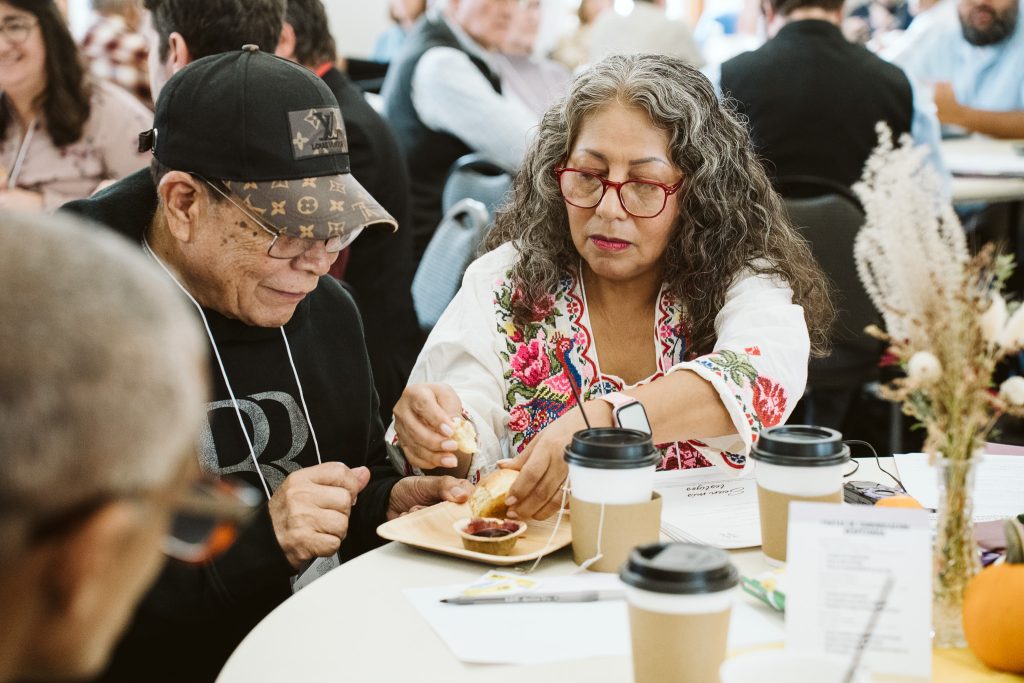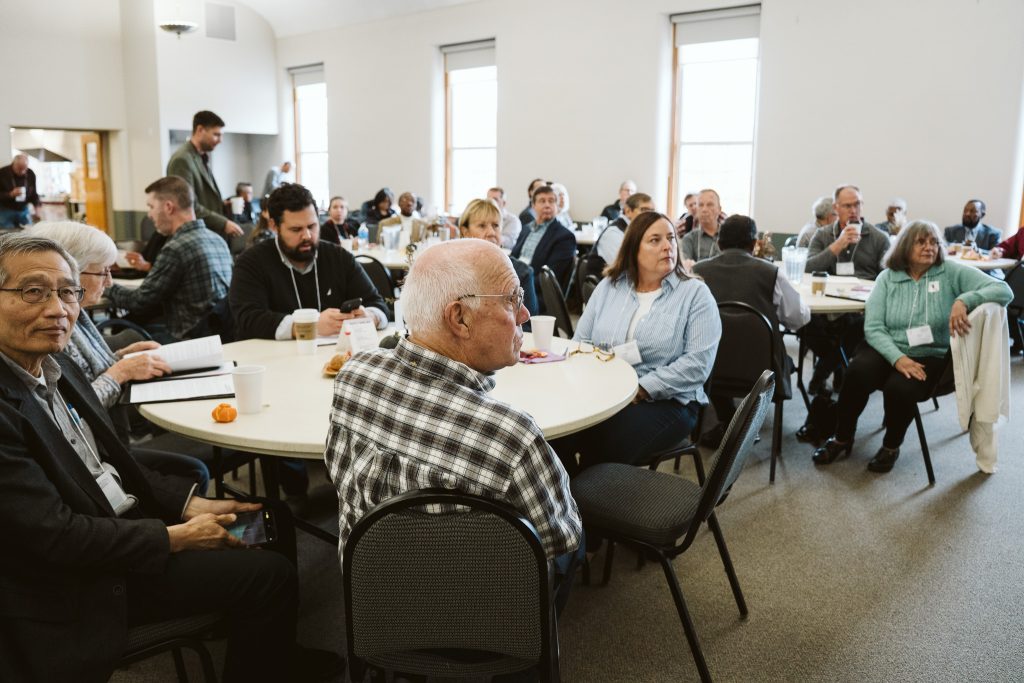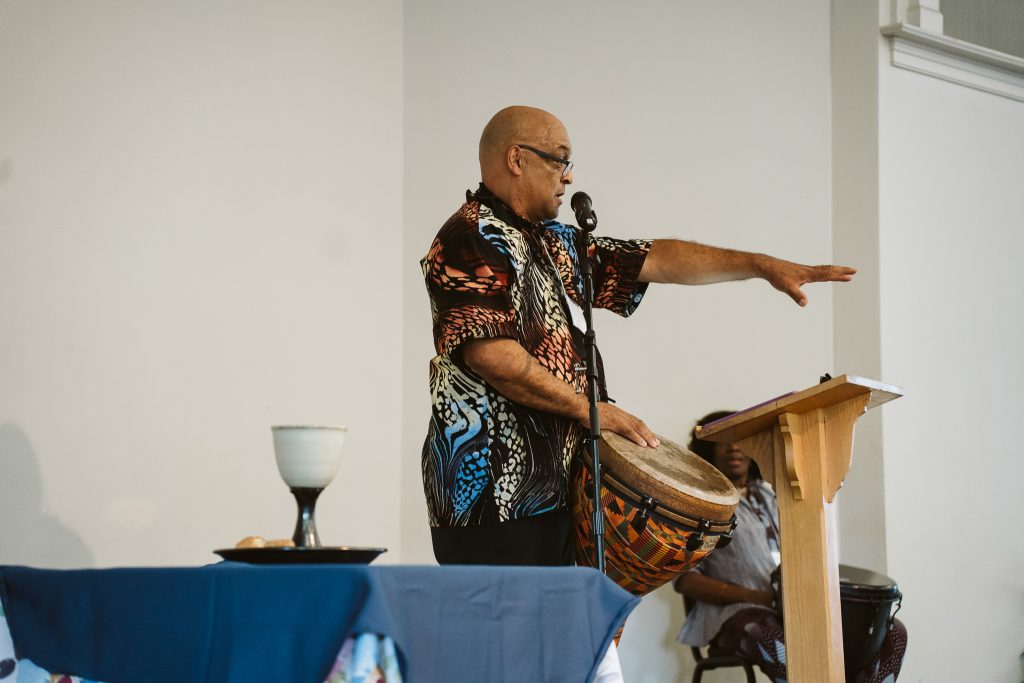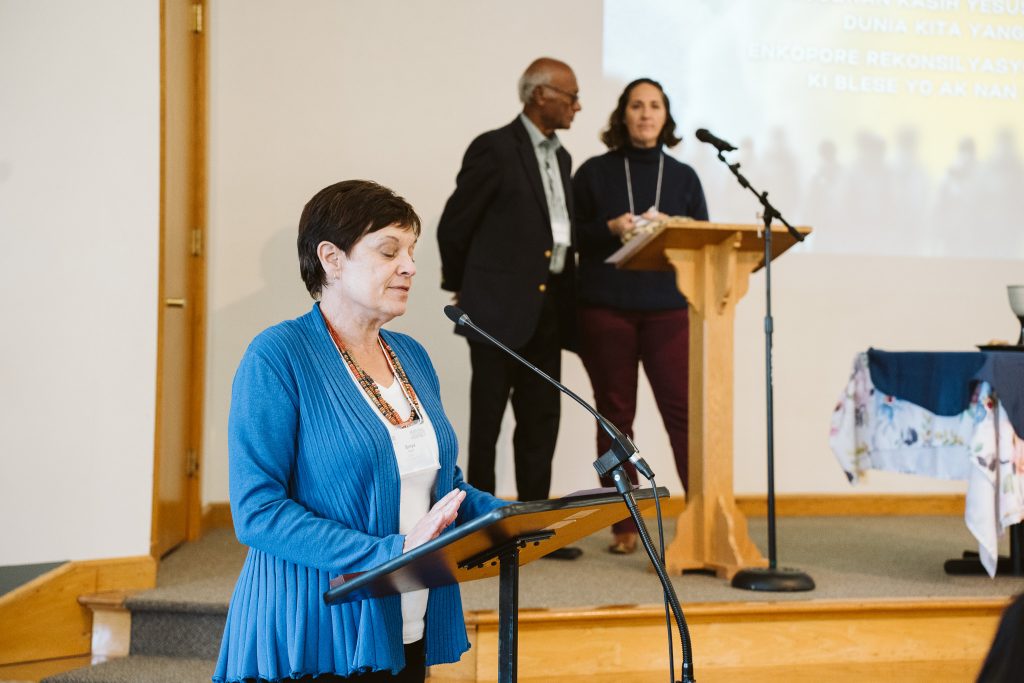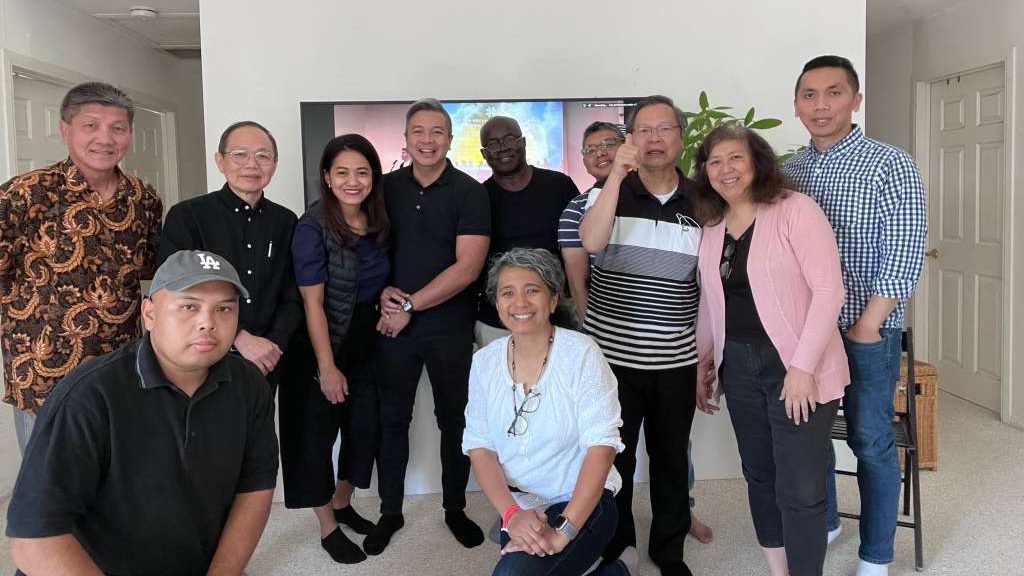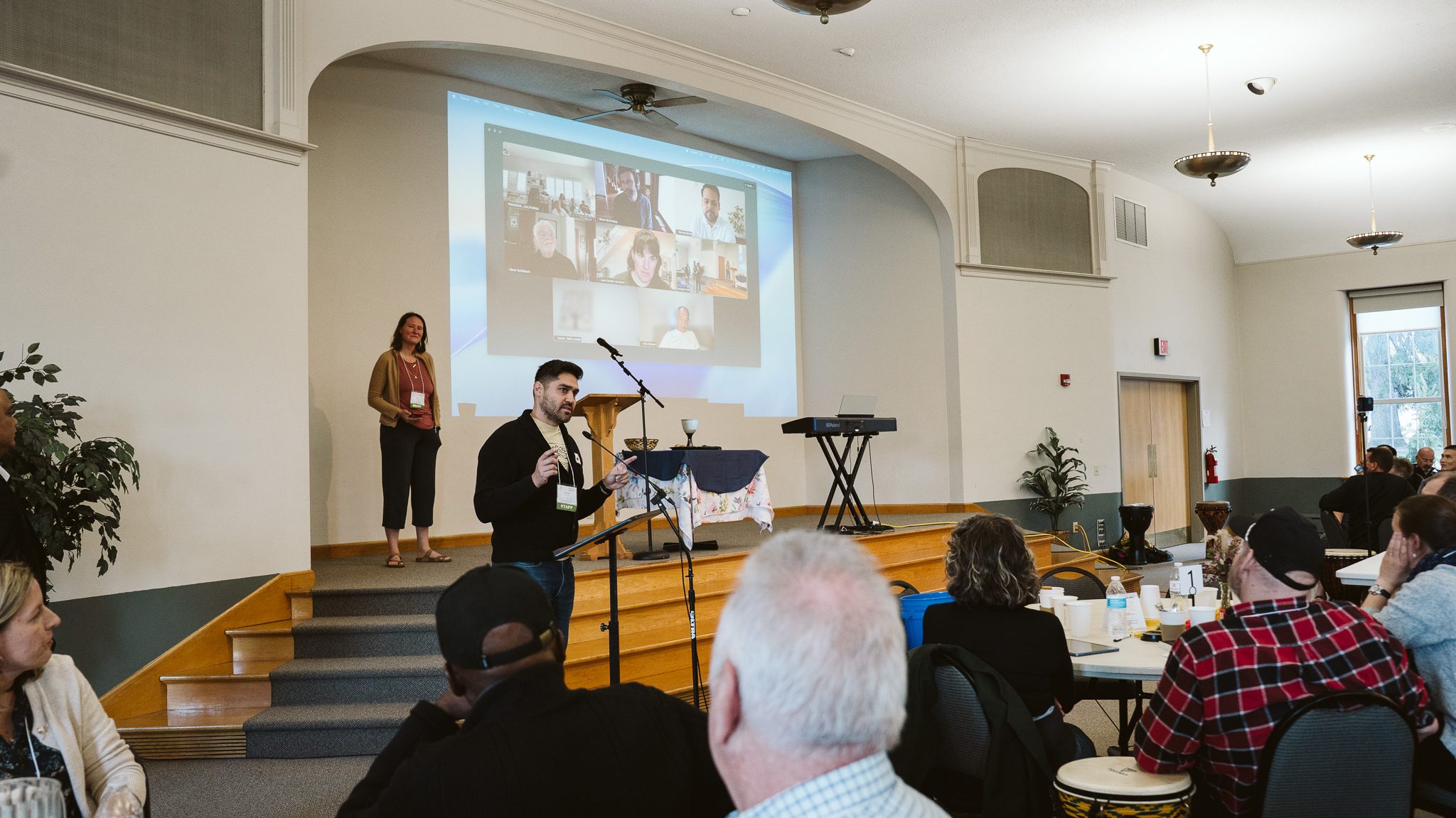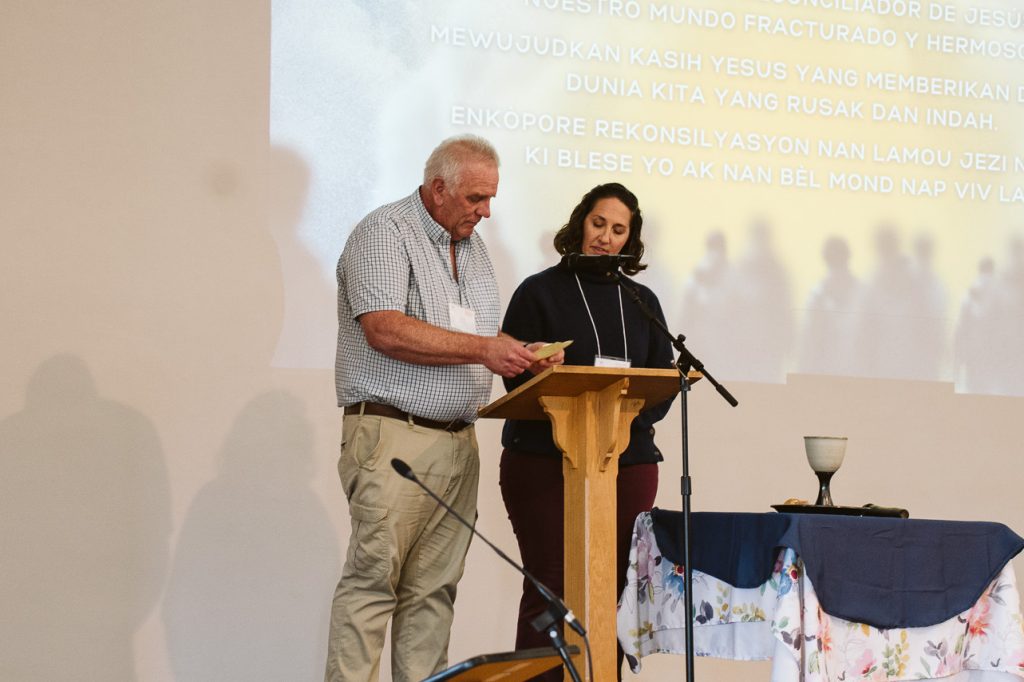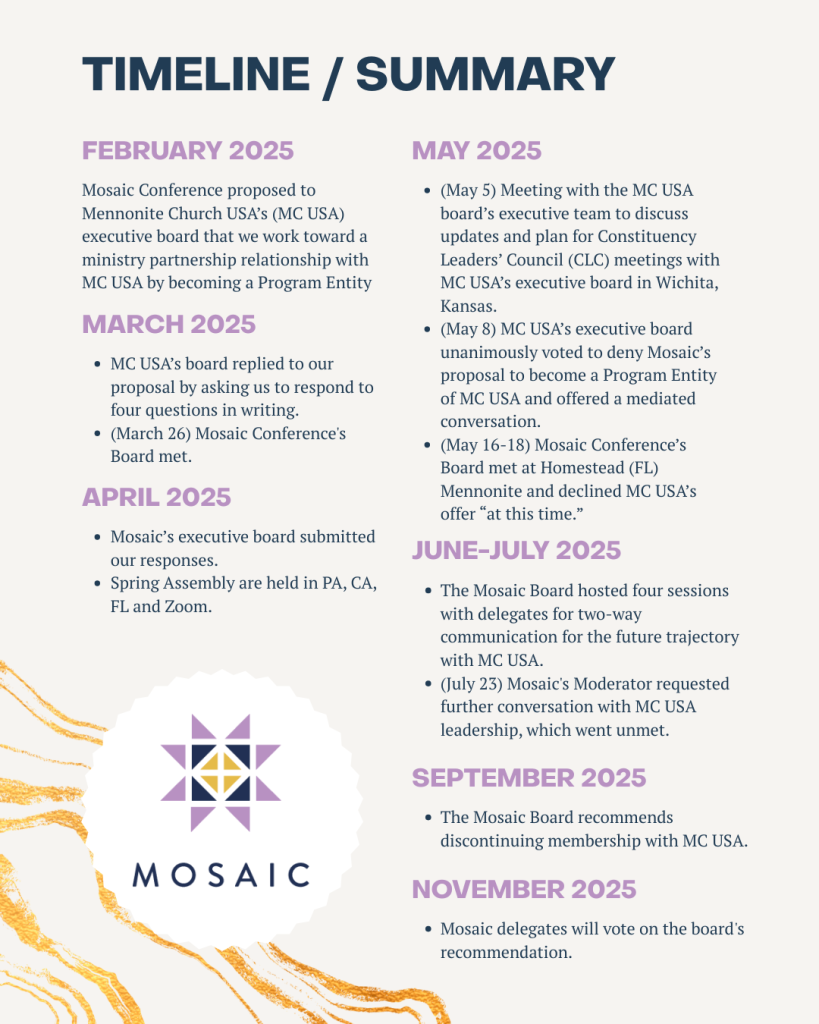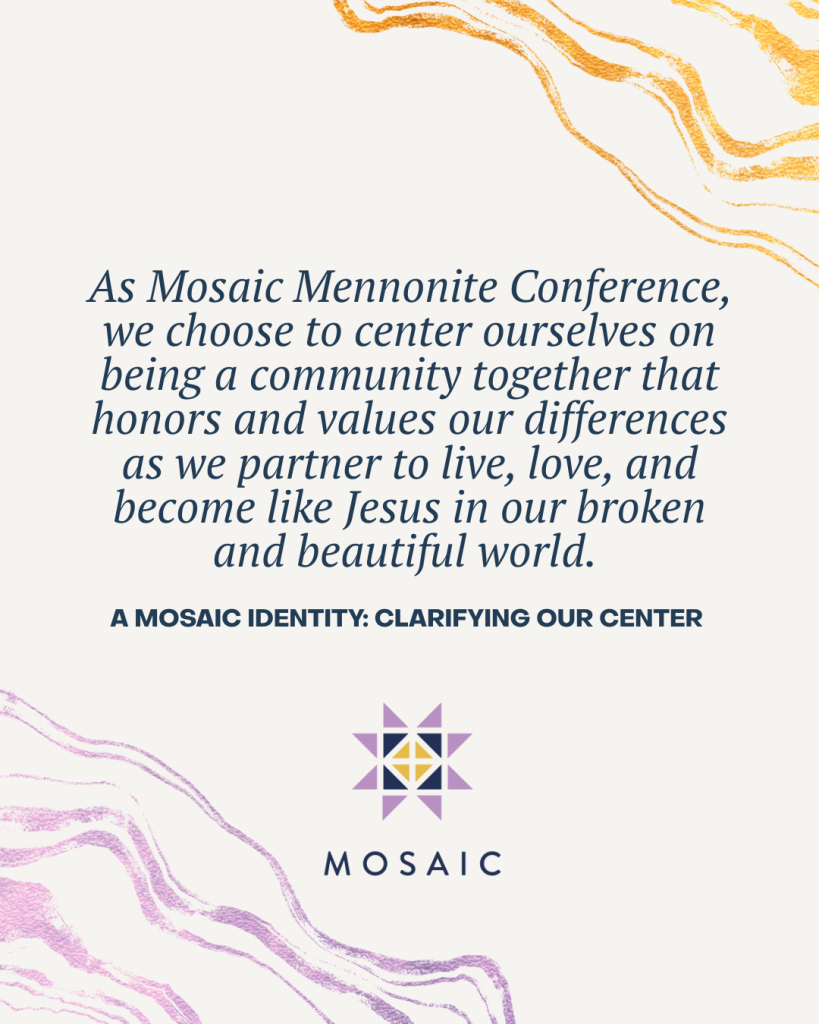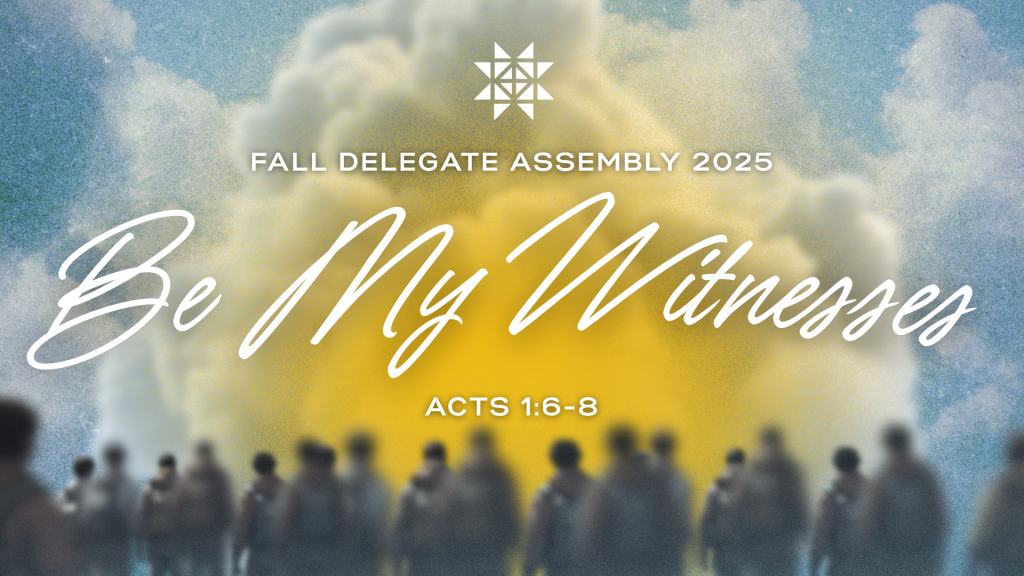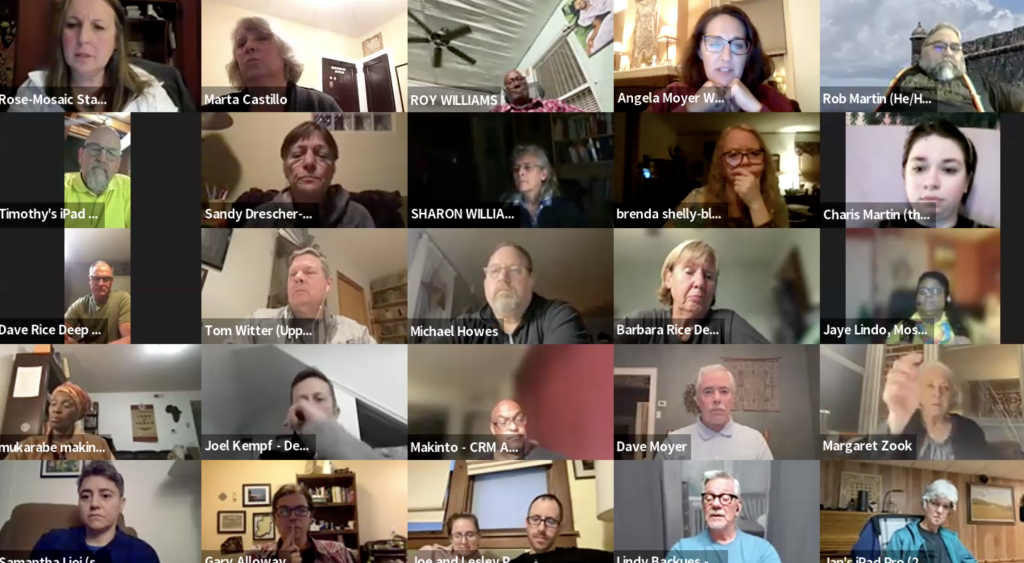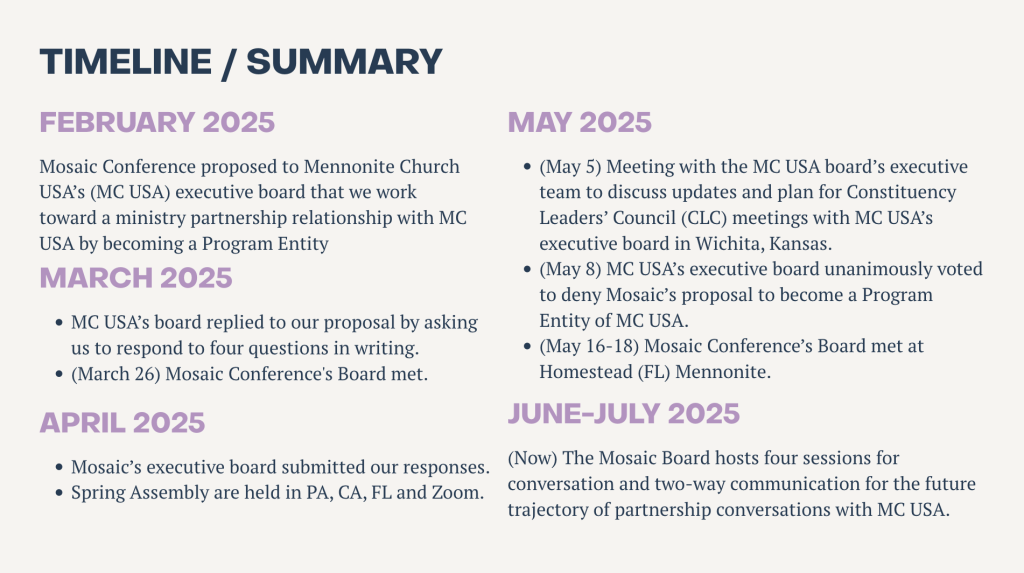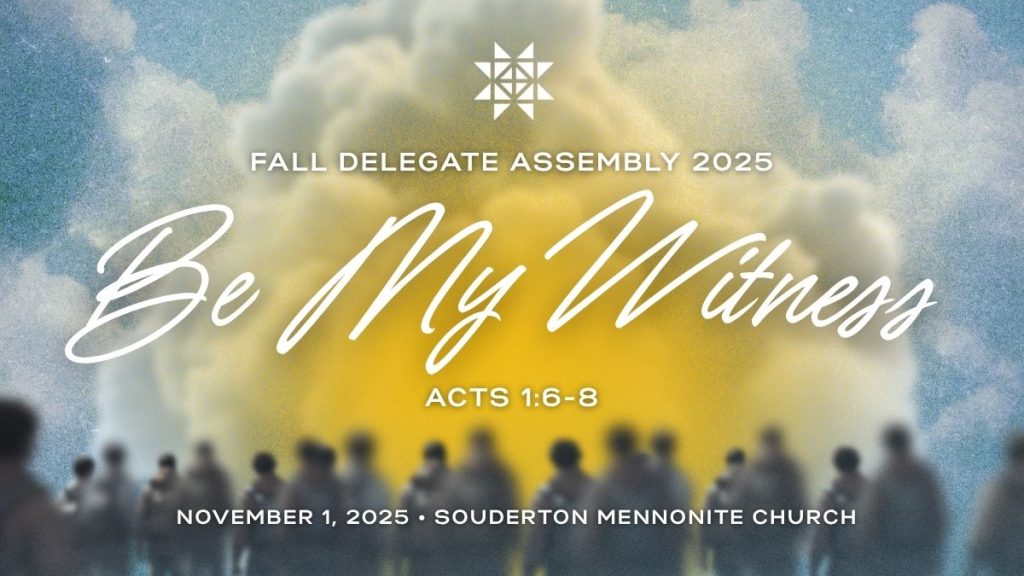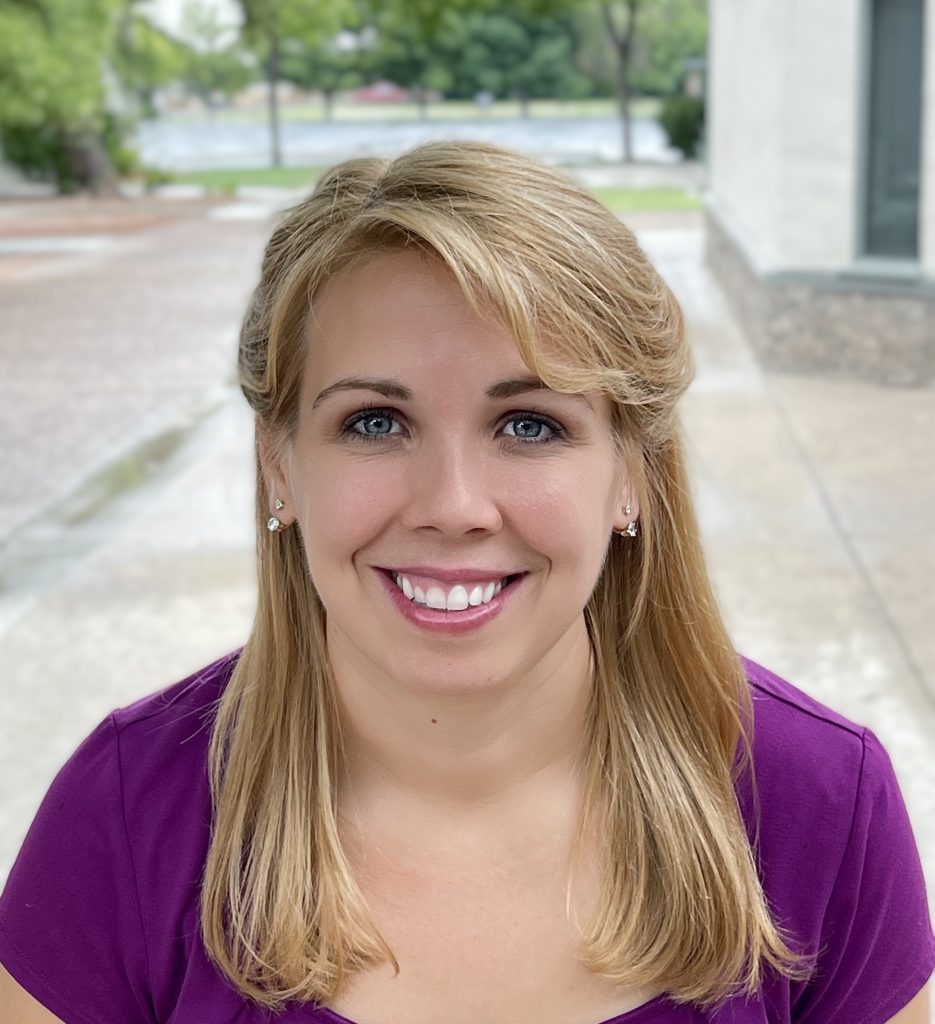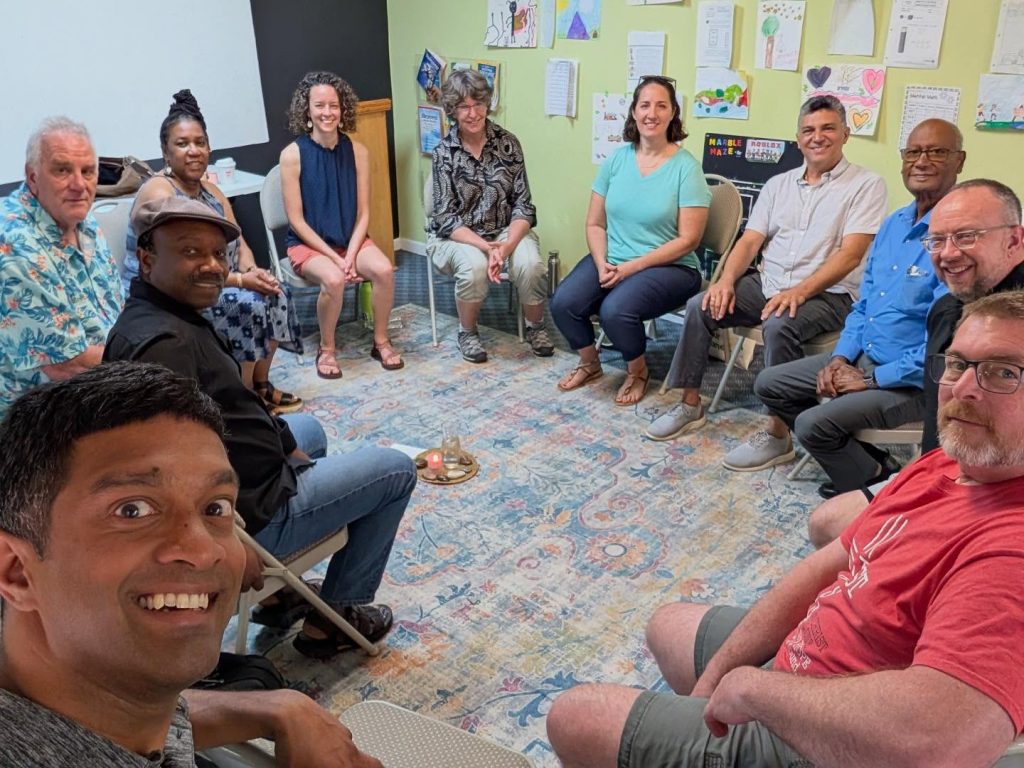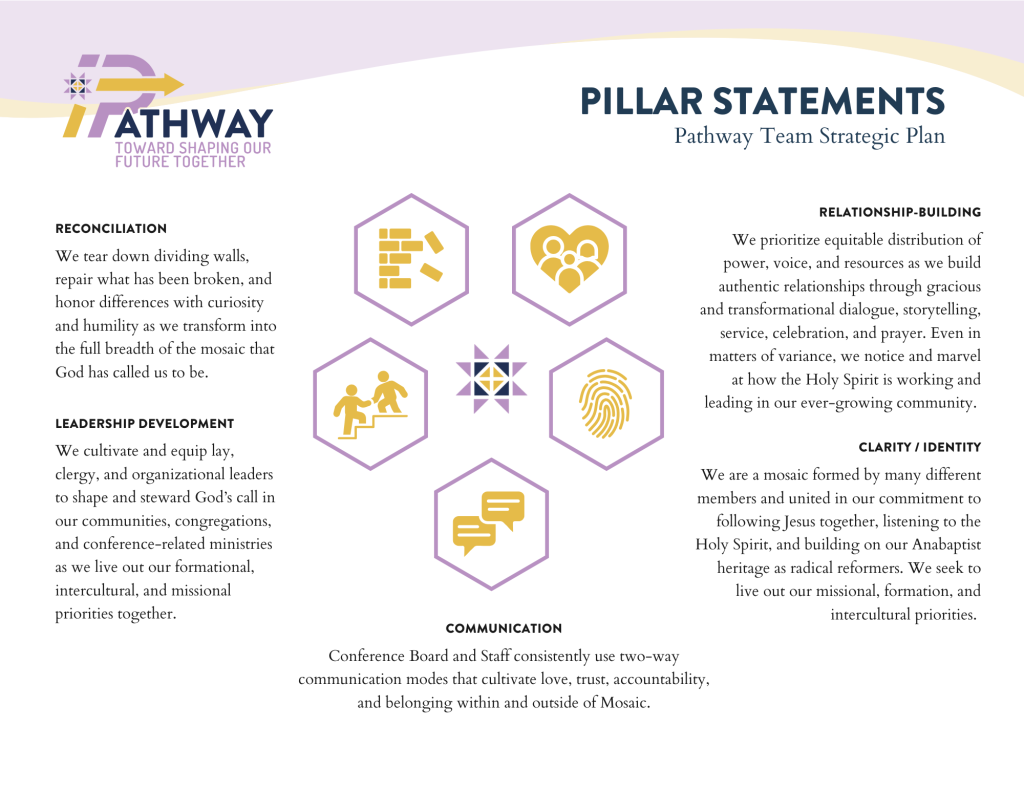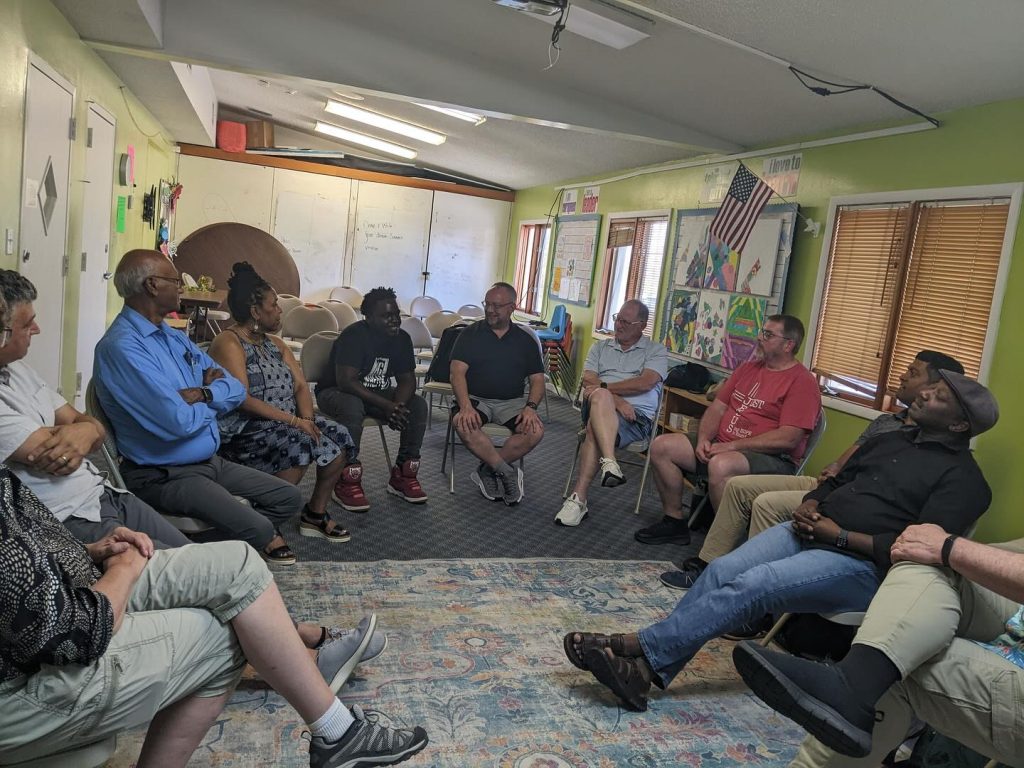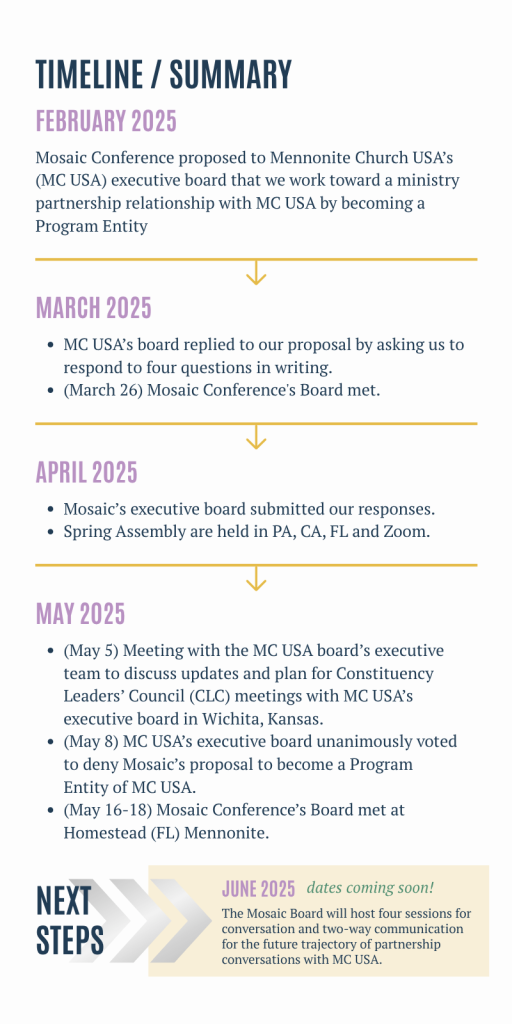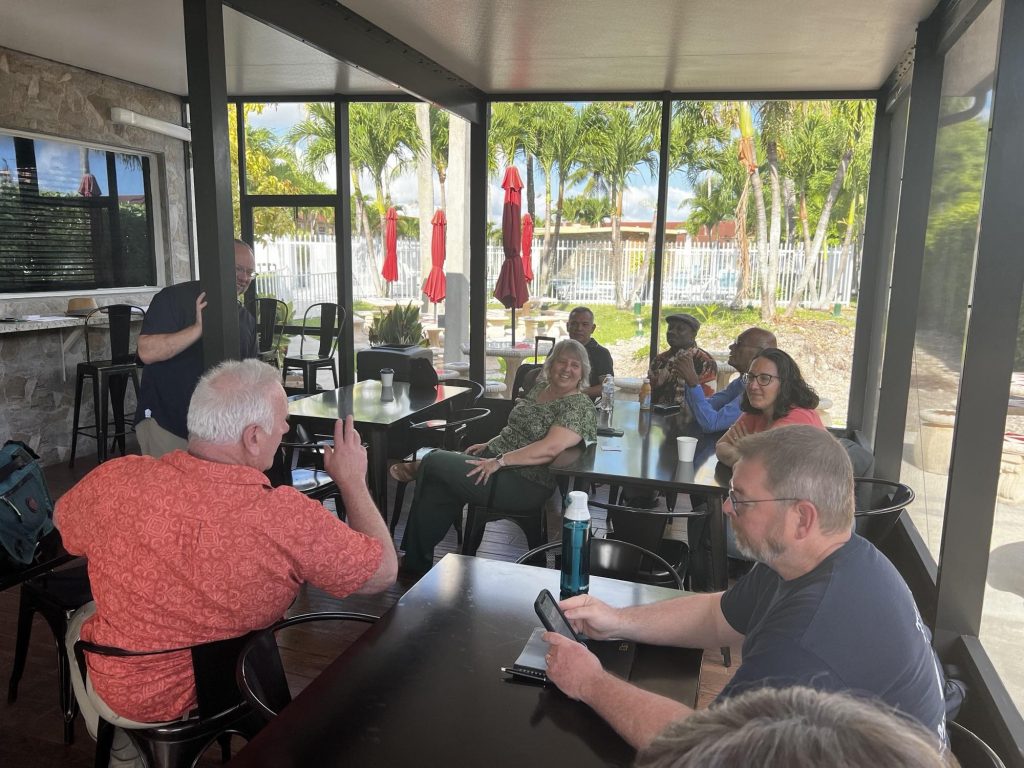“I am grateful for a God who gathers us in together. I am grateful for a conference who is willing to wrestle together, who is willing to speak, invite, challenge, and be honest,” shared Leadership Minister for Intercultural Transformation Danilo Sanchez in his opening remarks at Mosaic Mennonite Conference’s Annual Assembly on November 1, 2025.
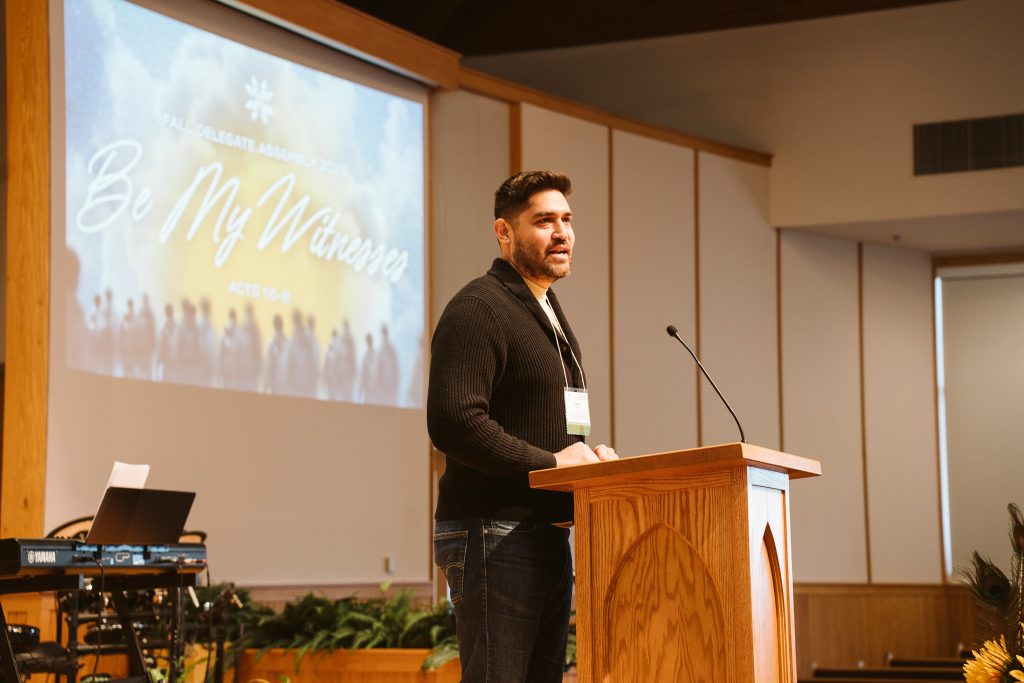
“I don’t know how the Spirit will show up today, but we are grateful for your presence here and the God that we serve,” he continued.
The morning began with vibrant worship led by a team representing seven nations and at least nine languages. The team sang in each other’s languages, embodying the rich diversity of the conference. Worship leader Makinto wrote a new song for the gathering, “We Are Your Witnesses.”
The Assembly’s theme, Be My Witnesses (Acts 1:6-8,), was introduced through Scripture read in six of the conference’s languages—Cantonese, Russian, Indonesian, Kirundi, English, and Spanish.
(The worship livestream is available here; more photos are available here).
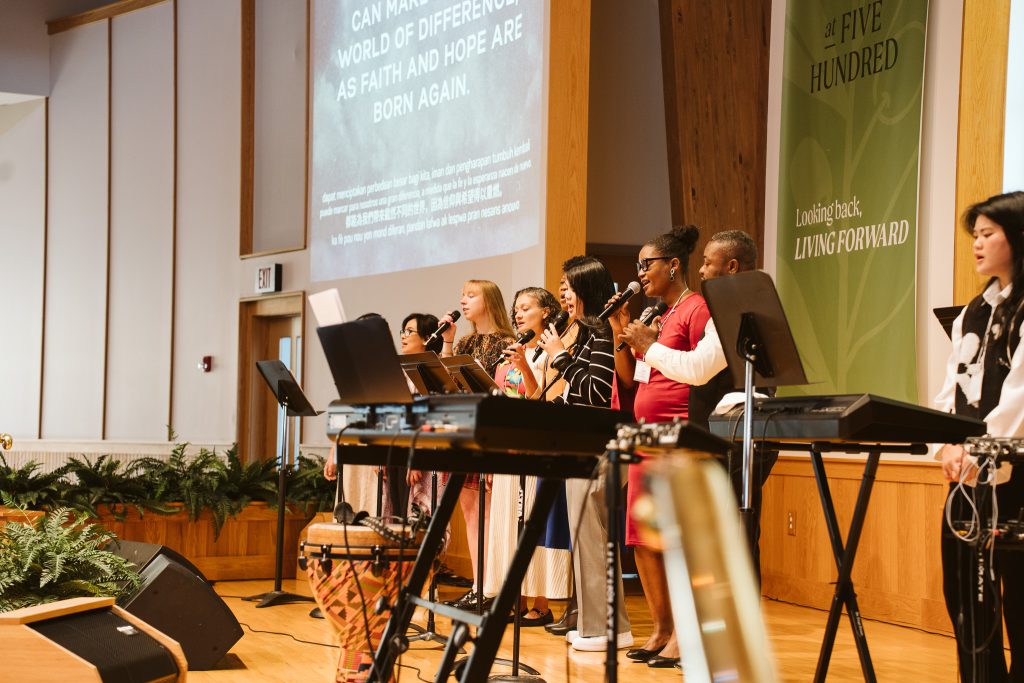
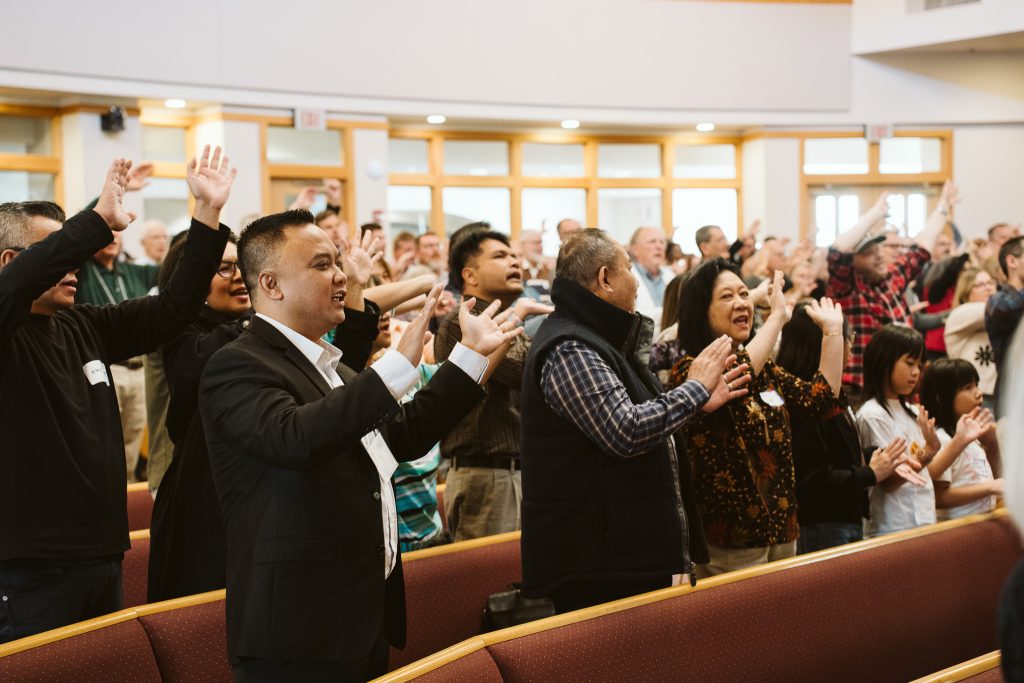
In her sermon, Rev. Dr. Meghan Larissa Good cast a vision for renewed Anabaptist witness, rooted in Jesus as the center of everything. Reflecting on the temptation for Anabaptists to “be proud of our humility,” she reminded participants that it is Jesus’ kingdom that matters, not our particular brand.
“If there is one thing that will be the death of our witness in the next 50 years, it will be trying to save our own lives,” Good challenged. “A church equipped for witness is one that is postured and prepared to give its life away for something better.”
“God excludes nobody. God wastes nobody. If you want to be part of the mission of Jesus, the answer is ‘yes,’” she encouraged.
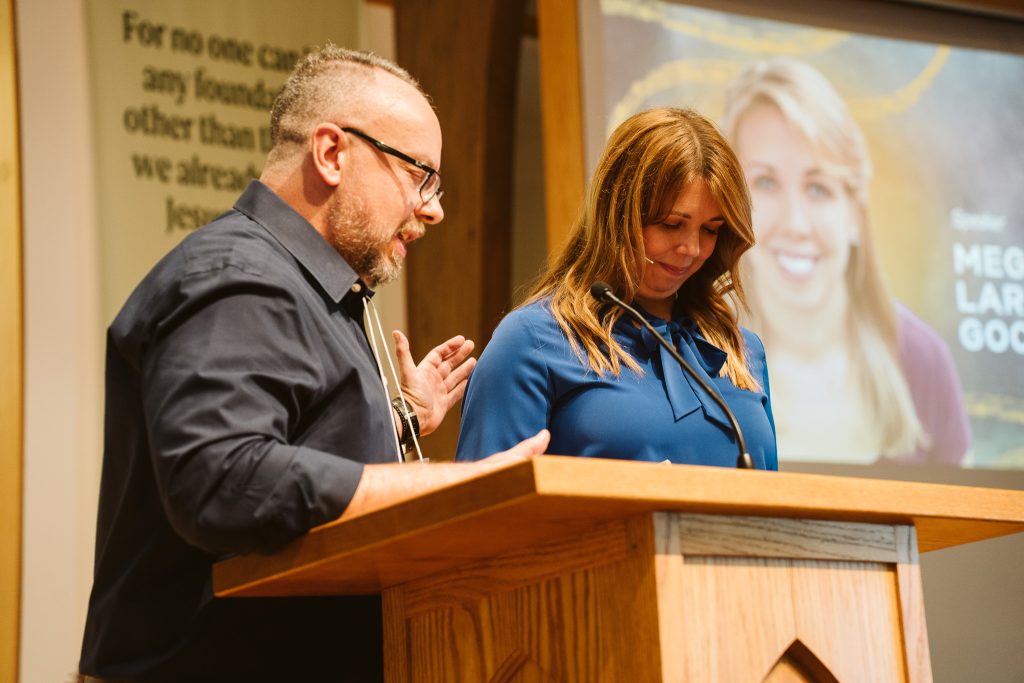
The time of worship included a welcome and prayer for three new member congregations: Iglesia Menonita del Cordero (Brownsville, TX); Iglesia Menonita Fuente de Agua Viva (Los Fresnos, TX); and Redemption Church of Bristol (PA).
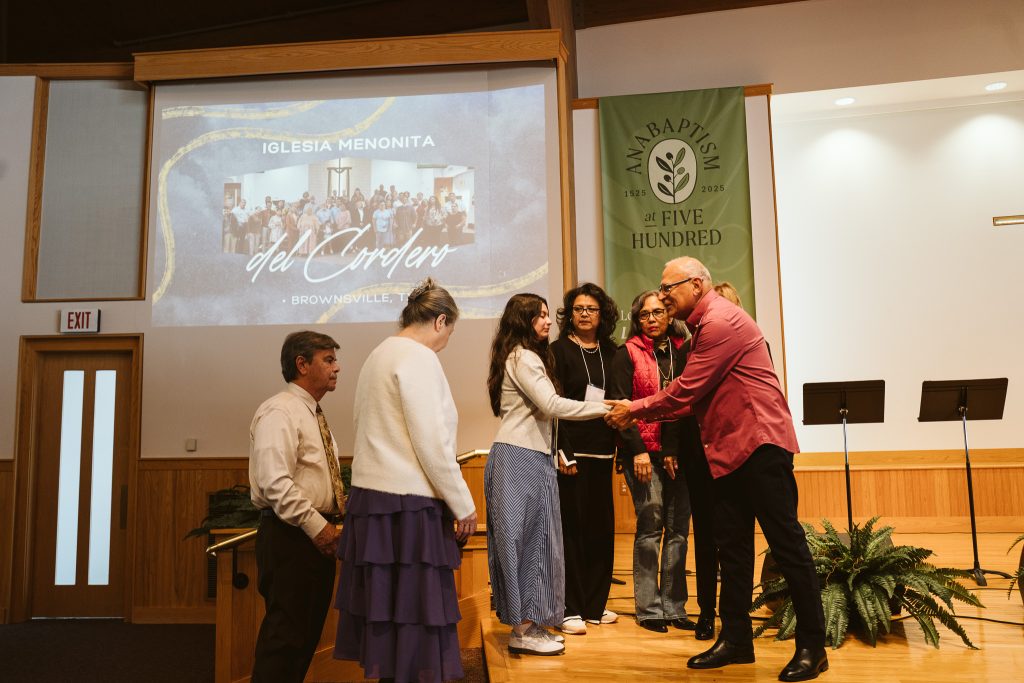
Participants also honored five credentialed leaders who had died in the past year and recognized two congregations (Salem Mennonite [Quakertown, PA] and Vincent Mennonite [Spring City, PA]) and a Conference-Related Ministry (Spruce Lake Retreat [Canadensis, PA]), that had left Mosaic.
Sixteen Mosaic leaders—newly credentialed, newly ordained, transferring credentials, and credential reaffirmed—were anointed and then offered anointing for all who wished to receive it.
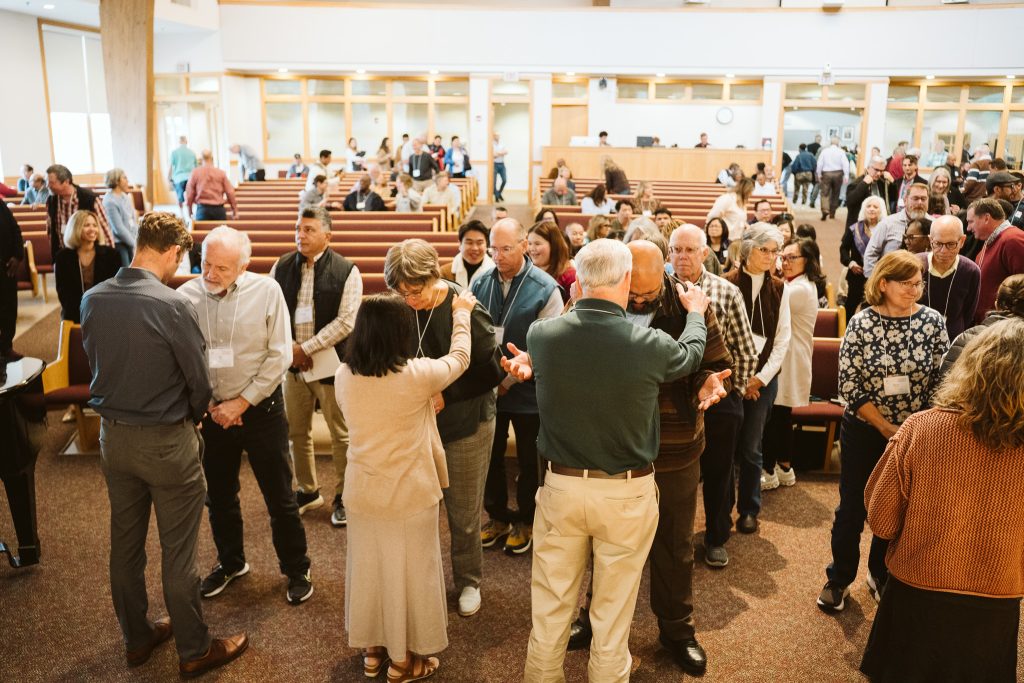
During the morning session, 165 delegates committed to guidelines for respectful communication, and shared communion, and engaged in conversation around the board’s recommendation around denominational affiliation.
(Read more about the delegate sessions and the vote on affiliation with MC USA.)
Lunch followed, offering time for fellowship and connection with leaders from Mosaic’s Conference-Related Ministries (CRMs) and other partner agencies.
In the afternoon, Makinto and Mukarabe Makinto, Associate Pastors of LA (CA) Faith Chapel and Co-Directors of CRM Amahoro International, led the group in an embodied peacebuilding and drumming ritual guided by Acts 1:6-8.
Participants were invited to reflect in table groups on Mosaic Conference’s new Centering Document (see: A Mosaic Identity: Clarifying our Center) and offer verbal and written feedback.
Beny Krisbianto, pastor of Nations Worship Center (Philadelphia, PA) noted that his table group emphasized that keeping Jesus at the center of Conference life will bear much fruit, and that listening to one another amid many differences will lead to a “rich theology.”
At the close of the discussion on the Centering Document, Emily Ralph Servant, Leadership Minister for Strategic Priorities, shared, “All of your table feedback is shared with the board. This is a living document. As they continue to receive your feedback, they’ll continue working on expressing who we are.”
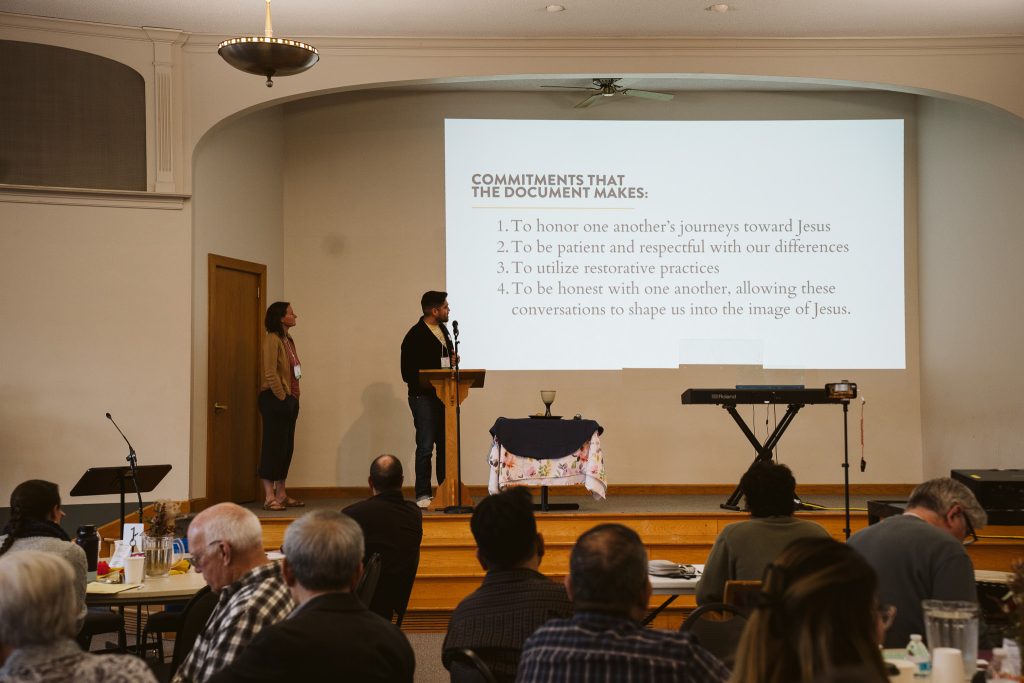
The conference recognized board members who are completing their terms at the end of the year: Kiron Mateti (Plains Mennonite [Hatfield, PA]), Angela Moyer Walter (Ripple Church [Allentown, PA]), Herman Sagastume (Healthy Niños Honduras), and Rodger Schmell (Deep Run West [Perkasie, PA]).
Beyond Saturday’s main gathering, the weekend included “Witness Together,” on Friday night: an evening of worship, intercultural relationship building, and equipping on Mosaic’s three core priorities of formational, missional, and intercultural transformation. On Sunday, numerous Pennsylvania congregations received visits by Mosaic leaders and guest preachers from Mosaic pastors and partner agencies.
Mosaic values two-way communication and encourages our constituents to respond with feedback, questions, or encouragement. To share your thoughts or send a message to the author(s), contact us at communication@mosaicmennonites.org.

